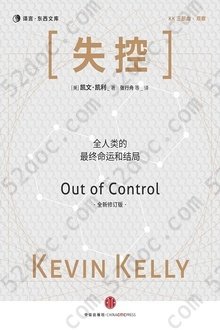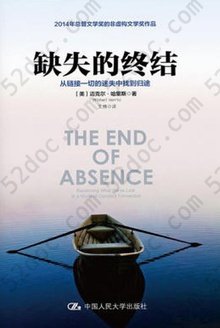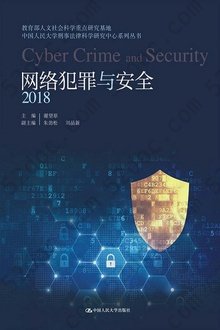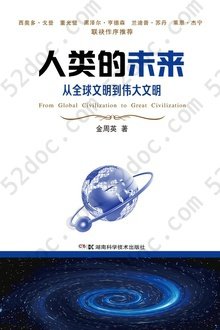注重体验与质量的电子书资源下载网站
分类于: 云计算&大数据 职场办公
简介

1989: a global history of eastern europe 豆 0.0分
资源最后更新于 2020-10-29 12:51:10
作者:James Mark
出版社:Cambridge University Press
出版日期:2019-01
ISBN:9781108447140
文件格式: pdf
标签: 政治学 历史 东欧 新自由主义 威权主义 politics 苏联 社会学
简介· · · · · ·
The collapse of the Berlin Wall has come to represent the entry of an
isolated region onto the global stage. On the contrary, this study argues
that Communist states had in fact long been shapers of an interconnecting
world, with 1989 instead marking a choice by local elites about the form
that globalisation should take. Published to coincide with the thirtieth
anniversary of t...
目录
Acknowledgements;
Introduction;
0.1 Going global;
0.2 The long transition and the making of transitional elites in global perspective;
0.3 A global history of the other '1989s';
0.4 The end of the '1989' era?;
1. Globalisation;
1.1 From socialist internationalism to capitalist globalisation;
1.2 Debt and ideological re-orientation;
1.3 The choice of 'neoliberal' globalisation;
1.4 Authoritarian transformations?;
1.5 Transformation from within;
1.6 Conclusion;
2. Democratisation;
2.1 Reforming elites;
2.2 Opposition from the local to the global and back;
2.3 Alternatives to '1989': authoritarianism and violence;
2.4 Disciplining transition and democratic peace;
3. Europeanisation;
3.1 The early Cold War: a divided Europe;
3.2 Helsinki - re-bordering Europe?;
3.3 An anti-colonial Europe: critiquing Helsinki;
3.4 A prehistory of Fortress Europe: civilisational bordering in late socialism;
3.5 Eastern Europe, a buffer against Islam?;
3.6 After 1989: 'Fortress Europe'?;
3.7 Conclusion;
4. Self-determination;
4.1 The rise of anti-colonial self-determination;
4.2 The Soviet withdrawal;
4.3 Peace or violence;
4.4 Reverberations of Eastern European self-determination;
4.5 Conclusion;
5. Reverberations;
5.1 1989 as a new global script;
5.2 Instrumentalising 1989: the West and new forms of political conditionality;
5.3 'Taming' the left;
5.4 Interventionism and the '1989' myth;
5.5 Eastern Europeans and the export of the revolutionary idea;
5.6 From Cuba to China: rejecting '1989';
5.7 Conclusion;
6. A world without '1989';
6.1 Towards the West? Ambiguous convergence;
6.2 Who is the true Europe? The turn to divergence;
6.3 Beyond the EU: post-socialist global trajectories;
6.4 Conclusion.
Introduction;
0.1 Going global;
0.2 The long transition and the making of transitional elites in global perspective;
0.3 A global history of the other '1989s';
0.4 The end of the '1989' era?;
1. Globalisation;
1.1 From socialist internationalism to capitalist globalisation;
1.2 Debt and ideological re-orientation;
1.3 The choice of 'neoliberal' globalisation;
1.4 Authoritarian transformations?;
1.5 Transformation from within;
1.6 Conclusion;
2. Democratisation;
2.1 Reforming elites;
2.2 Opposition from the local to the global and back;
2.3 Alternatives to '1989': authoritarianism and violence;
2.4 Disciplining transition and democratic peace;
3. Europeanisation;
3.1 The early Cold War: a divided Europe;
3.2 Helsinki - re-bordering Europe?;
3.3 An anti-colonial Europe: critiquing Helsinki;
3.4 A prehistory of Fortress Europe: civilisational bordering in late socialism;
3.5 Eastern Europe, a buffer against Islam?;
3.6 After 1989: 'Fortress Europe'?;
3.7 Conclusion;
4. Self-determination;
4.1 The rise of anti-colonial self-determination;
4.2 The Soviet withdrawal;
4.3 Peace or violence;
4.4 Reverberations of Eastern European self-determination;
4.5 Conclusion;
5. Reverberations;
5.1 1989 as a new global script;
5.2 Instrumentalising 1989: the West and new forms of political conditionality;
5.3 'Taming' the left;
5.4 Interventionism and the '1989' myth;
5.5 Eastern Europeans and the export of the revolutionary idea;
5.6 From Cuba to China: rejecting '1989';
5.7 Conclusion;
6. A world without '1989';
6.1 Towards the West? Ambiguous convergence;
6.2 Who is the true Europe? The turn to divergence;
6.3 Beyond the EU: post-socialist global trajectories;
6.4 Conclusion.








